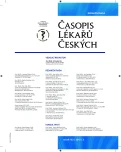Joint Programming: a new instrument for intensive cooperation in biomedical research in Europe
Authors:
Judita Kinkorová
Authors‘ workplace:
Technologické centrum Akademie věd ČR, Praha
Published in:
Čas. Lék. čes. 2013; 152: 79-82
Category:
Special Articles
Overview
The aim of the Joint Program-ming process is to pool national research efforts in order to make better use of European precious public research and development resources and to tackle common European challenges more effectively in a few key areas. Joint programming is a structured and strategic process whereby Member States agree, on a voluntary basis and in a partnership approach, on common visions and Strategic Research Agendas (SRA) to address major societal challenges. On a variable geometry basis, Member States commit to Joint Programming Initiatives (JPIs) where they implement together joint Strategic Research Agendas.
Keywords:
joint programming – national programmes – ageing population – healthy life
Labels
Addictology Allergology and clinical immunology Angiology Audiology Clinical biochemistry Dermatology & STDs Paediatric gastroenterology Paediatric surgery Paediatric cardiology Paediatric neurology Paediatric ENT Paediatric psychiatry Paediatric rheumatology Diabetology Pharmacy Vascular surgery Pain management Dental HygienistArticle was published in
Journal of Czech Physicians

- Advances in the Treatment of Myasthenia Gravis on the Horizon
- Possibilities of Using Metamizole in the Treatment of Acute Primary Headaches
- Metamizole at a Glance and in Practice – Effective Non-Opioid Analgesic for All Ages
- Metamizole vs. Tramadol in Postoperative Analgesia
- Spasmolytic Effect of Metamizole
-
All articles in this issue
- Microscopic colitis
- Long-term problem with addictive substances dependence and its solution: a case report
- Joint Programming: a new instrument for intensive cooperation in biomedical research in Europe
- Marcus Tullius Cicero and medicine
- Irreversible electroporation: local, non-thermal, ablation therapy of malignant tumours
- Journal of Czech Physicians
- Journal archive
- Current issue
- About the journal
Most read in this issue
- Microscopic colitis
- Irreversible electroporation: local, non-thermal, ablation therapy of malignant tumours
- Long-term problem with addictive substances dependence and its solution: a case report
- Marcus Tullius Cicero and medicine
